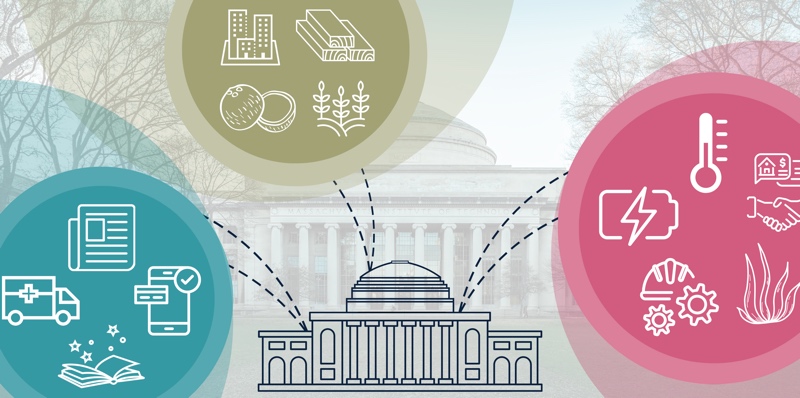Event
Recap
MITdesignX Pitch Day
By Pushti Rana (Intern) - 26th June, 2025

2025 MIT DesignX Wrapped
For the ninth annual MITDesignX pitch event, 13 startups presented their solutions to societal challenges for a panel of judges, mentors, venture capitalists, and peers. This event is a pivotal part of the Morningside Academy of Design and the MIT community. The following highlights each team's venture.
Many teams focused on sustainable building solutions. One of them, Reframe, makes use of excess materials such as stud frame waste to create prefabricated building materials. Crop*d converts crop waste in India into biogenic building material, preventing the unnecessary burning of crops and leading to cleaner air. The team at Arca has designed prefabricated flexible panels that can be shaped into curves that serve as structural walls. They are determined to transform traditional housing typologies into adaptable urban lots. Kokus is using biodegradable materials such as coconuts to create sustainable products, including building materials and furniture.
Other innovations involved economic sustainability. Axiom is repurposing oil refinery waste from the production of electric vehicle batteries. They aim to close the energy loop selling petrochemical materials back to battery manufacturers. Another team, Bioboost, transforms sargassum seaweed into green energy. Using excess seaweed in the Caribbean, this team has generated a new type of biofuel to power homes. Several teams incorporate AI into their projects, such as Climatechnologies, which has developed software that adjusts commercial building temperatures, leading to more energy efficient and longer-lasting buildings. Tangible Impact has created an AI platform that improves communication between real estate developers and the impacted community, in order to make the urban development process more efficient. It enables all parties to communicate their needs and ideas in one place.
The team for Daero arrived in full uniform, presenting in construction gear. This team is reinventing the approach to punch lists with an app that allows users to quickly document, organize, and integrate data into one system, leading to faster construction.
Some teams, like Acaciapulse, have an academic component. This geo-specific effort focuses on utilizing social media to help aid agencies locate displaced people in Sudan by using present and historical migration data. Other teams’ objectives were catered to individuals. The garment-reselling platform, Helix, reduces the overconsumption of clothing and creates deeper connections between the clothes people buy and sell. Geni has designed an immersive AI storytelling tool that mixes and matches various subjects, stimulating children’s creativity and eliminating the need for a screen. Traverse is a customizable news platform that provides a handful of personalized articles daily. It helps users stay informed about their interests and prevents the overconsumption of media.
This cohort was assessed on being the most innovative and impactful and having the best presentation. The team at Crop*d won for “most innovative idea,” Clima Technologies won for “most impactful,” and Daero won for “best presentation.” Each team provided advanced approaches to address global issues through data-driven research and thoughtful design practices.
Such events are catalysts for innovation, in addition to helping students connect scholarship to application DesignX gives students the opportunity to channel their skills into a cause they are passionate about and sometimes results in workable, real-world solutions.

